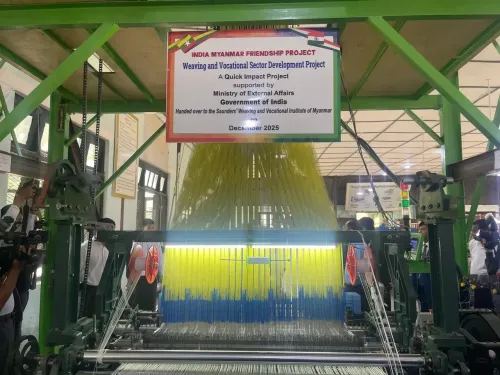German Businesses Confront Structural Challenges of Layoffs and Skilled Labor Deficits

Berlin, Dec 20 (NationPress) Companies in Germany are retracting their workforce strategies as a result of an unchanging economy and diminishing demand across most industries, as per a monthly survey published by the ifo Institute for Economic Research.
The survey, made public on Thursday, indicated that the employment sentiment barometer fell to 92.4 points in December, down from 93.3 in the previous month, according to reports from Xinhua news agency.
Among the four sub-sectors evaluated, manufacturing and trade indicators remained at low levels, while services and construction also showed unfavorable readings.
"Fewer companies are increasing their workforce," stated Klaus Wohlrabe, the head of surveys at the Munich-based think tank. Layoffs are being contemplated particularly in nearly all manufacturing sectors, with the metal and automotive industries being among the most adversely affected.
A separate annual report concerning skilled labor, released on Thursday by the German Chamber of Commerce and Industry (DIHK), reinforced similar apprehensions. The report pointed out that economic frailty in Germany is diminishing the demand for personnel among the 23,000 companies surveyed, heightening the risk of escalating unemployment.
Nonetheless, 43 percent of firms reported facing a scarcity of skilled workers, even as the pool of potential unemployed individuals expands. "Companies seeking to hire are favoring qualified candidates over those who are merely available," the report emphasized, characterizing this dilemma as a "mismatch issue."
Elevated energy expenses, uncertainties in economic policies impacting investment choices, and fierce international competition continue to create significant hurdles for businesses in Europe’s largest economy, which have, in turn, suppressed the demand for labor. These structural challenges, paired with the skilled labor shortage, serve as a "double brake on growth," remarked Achim Dercks, the Deputy Managing Director of the German Chamber of Commerce and Industry.
Moreover, the adoption of artificial intelligence (AI) is gaining traction in Germany, with 20 percent of companies now integrating this technology—an increase from 12 percent in 2022 and 11 percent in 2021.
According to the Federal Statistical Office last month, larger companies are at the forefront, with nearly half of those employing 250 or more workers utilizing AI. In contrast, adoption rates are lower among medium-sized enterprises (28 percent) with 50 to 249 employees and small businesses (17 percent) with 10 to 49 employees.
Among organizations employing AI, the most prevalent applications include written language analysis and speech recognition. These technologies are primarily applied in marketing and sales.
However, numerous businesses still exhibit reluctance towards adopting AI. The main reasons cited include a lack of knowledge regarding the technology, reported by 71 percent of respondents, along with concerns about legal ramifications and data protection, at 58 percent and 53 percent, respectively.










